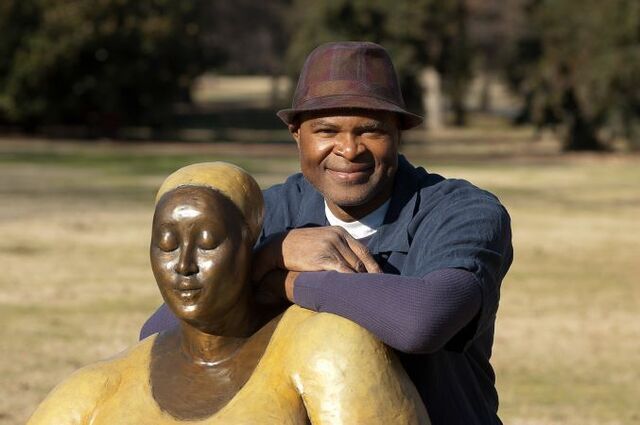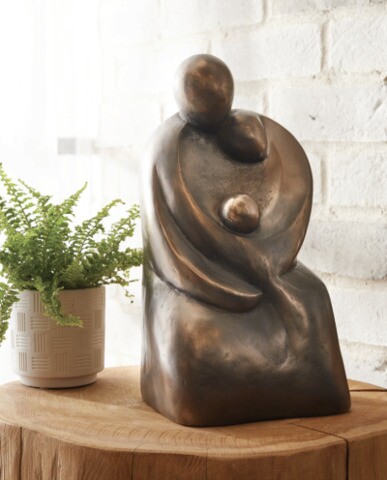Sculptor Nnamdi Okonkwo was 23 years old when he joined the Church while attending BYU–Hawaii. Many of his sculptures honor womanhood and use fluid lines and simple shapes to create a symbolic representation of humanity. Okonkwo is married and the father of three children. We recently asked him about his faith, family, and what motivates his artwork.
How did you get into art?
Art was definitely my first love [over] every other thing that I ever did, but I didn’t think I was any good at it. I wanted to go into something more “practical.” Finally, when I was around 17 years old, all my doors were literally closing and my mother kept on pushing [me to pursue art]. I never had any great visions of what I would do or become as an artist, but I applied to see if I could get into an art program to please my mother and to have some direction in my life. I was tired of feeling like a rudderless ship. Then I had what I call a rendezvous with faith, and there were a few things that happened that turned me 100 percent to embracing art.
You are so happy, and happiness seems to be a theme of your art. Why?
I have a love for humanity, love for people, love for life, love for being. I think love, more than anything, moves me in my art . . . because if you notice, even the joyful pieces that I do, the [people] are not just excited, throwing their hands up on their own—they are happy with others. The way that they lean into each other, the way that they interact with each other—you can see love there. [To me,] art is a gesture of divinity and the artists are the conduit to restore order, balance, beauty, meaning, and most importantly, hope to humanity. If I don’t feel that my art inspires hope, then I don’t sign off on it.
What is your favorite part of being a husband and a father?
When you have kids, the way you see God changes. Before, when bad things started happening to me, I [was like,] “God, how can you allow this to happen to me? I’m your favorite child here, what are you doing to me?” But since having kids, now when I’m suffering, I don’t think it’s because God doesn’t love me anymore. There must be something higher, something better that God wants me to be in touch with. That’s why He’s allowing me to go through the suffering.
► You may also like: Mack Wilberg shares what music he listens to, his advice to aspiring musicians, and more
What does it mean to you to let God prevail in your life?
When you begin to let God prevail in your life, that’s when you begin to experience God’s miracles in your life. That is very powerful, and it’s powerful not only because I heard [President Nelson] say it—it’s powerful because when I heard it, I felt that it was something I already believed in, but he put it in words that were beautiful. It’s the hardest thing to do, to let God prevail, because it means . . . I am willing to sacrifice if that’s what God wants me to do, including [sacrificing] my pride, my fears, everything that I feel naturally—I’m willing to put it on the block. The more that I practice it, the more miracles that I see, because . . . God is saying, “Alright, you are moving out of the way and letting me take over.” And God is a God of miracles. Nothing, absolutely nothing, is impossible with God. That’s one statement that I believe completely—120 percent.
The Family
"God wanted me to understand something about His love for me, so He gave me children and He gave me my family. When God asks me to love others like He loves me, He means for me to treat everyone as if they were exactly my kin. The more I hold sacred this fundamental unit of society and then reach outwards to accommodate others, the more God is pleased with me, and He will indeed be as a father to me, as also we indeed all have a common Father in God."
Find The Family at Deseret Book stores and on deseretbook.com.


